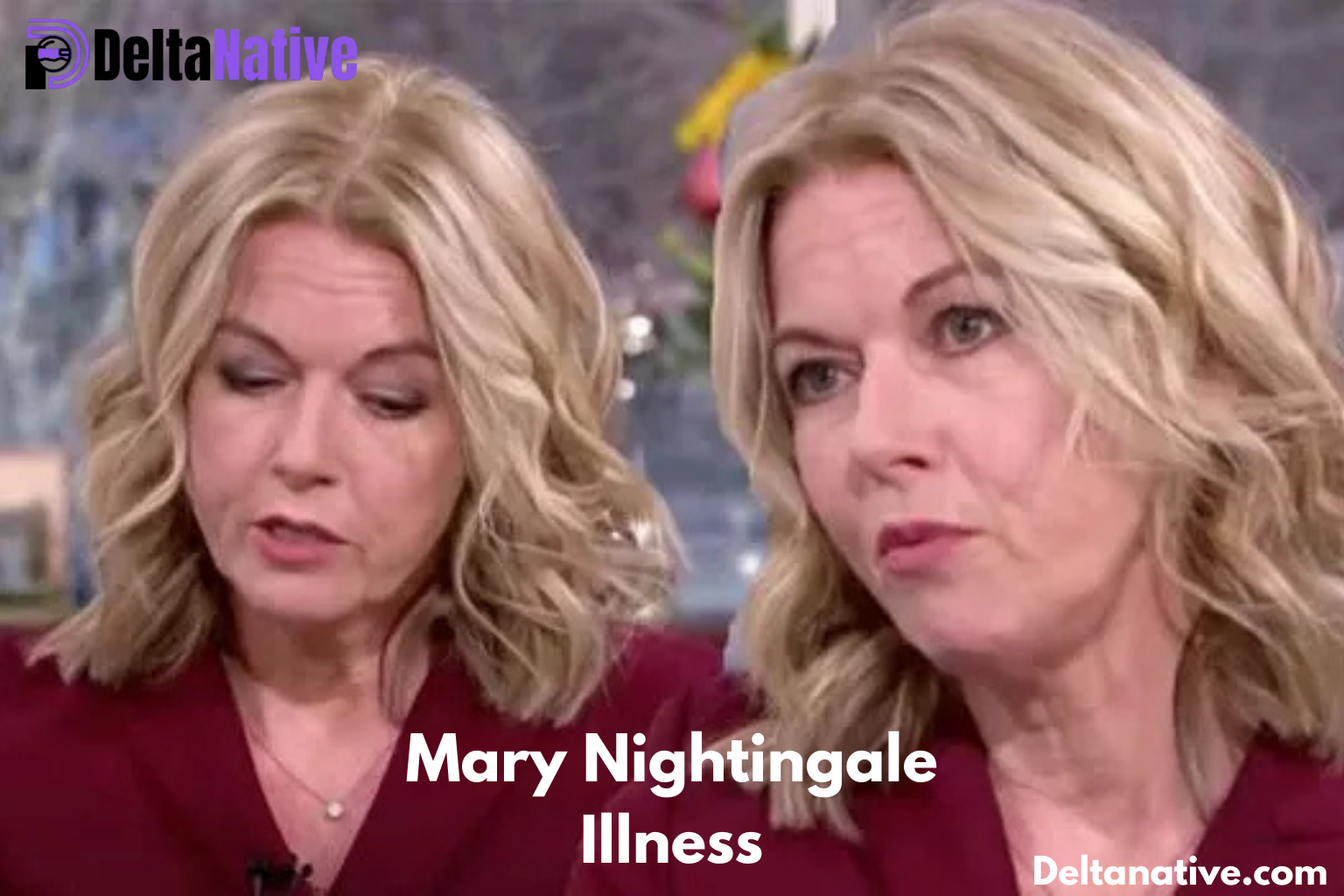Introduction
Mary Nightingale is a highly respected British television presenter and journalist, best known as the face of ITV Evening News. With a career spanning decades, she has earned the trust of millions of viewers through her professionalism, calm demeanor, and commitment to delivering accurate news. However, in the early 2000s, Mary faced a health challenge that sparked public concern—persistent problems with her throat and voice. This article explores the story of Mary Nightingale’s illness, how she overcame it, and what her journey teaches us about resilience, health awareness, and personal strength.
Mary Nightingale’s Career and Public Image
Before discussing her health, it’s important to understand Mary’s place in broadcasting. She became ITV Evening News presenter in 2001 and quickly established herself as one of the most authoritative news anchors in the UK. Known for her steady voice and calm presence, her role demanded not only strong journalism but also consistent vocal performance during long broadcasts. This is why her health struggles drew attention—her voice was not just a tool but the core of her career.
Also Read: Victoria Coren Mitchell Illness: Rumors, Reality, and the Importance of Reliable Information
The Onset of Illness and Vocal Strain
In the early 2000s, viewers noticed Mary’s voice occasionally faltering during live news bulletins. Sometimes her speech would crack, fade, or weaken unexpectedly. This issue became more noticeable after a particularly long coverage following the death of the Queen Mother in 2002, which strained her vocal cords further.
For a television presenter, vocal strength is essential, and Mary’s sudden struggles led to widespread speculation. She herself feared it could be something serious, including the possibility of throat cancer.
Medical Tests and Public Concern
Mary underwent a series of thorough medical tests, including cancer screenings, to identify the cause of her throat problems. For months, she lived with uncertainty, continuing to appear on television while undergoing examinations. Thankfully, doctors later confirmed that she did not have cancer.
Instead, her condition was attributed to stress and vocal strain, a problem common among professionals whose careers rely heavily on their voices. This diagnosis brought great relief, both for Mary and her concerned audience.
Managing and Overcoming the Condition
After the diagnosis, Mary Nightingale began working with medical experts and vocal coaches to manage her condition. Some of the key steps in her recovery included:
- Voice Therapy – Learning techniques to reduce strain on vocal cords.
- Breathing Exercises – Improving posture and airflow to support her voice.
- Hydration and Vocal Care – Staying hydrated and avoiding habits that worsen throat irritation.
- Stress Management – Reducing work-related stress through balance and self-care.
Over time, these adjustments allowed Mary to regain her voice strength and continue presenting on national television.
Step-by-Step Guide: Caring for Your Voice Like a Professional
Mary Nightingale’s experience offers valuable lessons for anyone who relies on their voice daily—teachers, speakers, singers, or broadcasters. Here’s a simple step-by-step guide inspired by her recovery:
- Stay Hydrated – Drink plenty of water to keep vocal cords lubricated.
- Warm Up Your Voice – Just like athletes warm up muscles, practice gentle vocal exercises before speaking at length.
- Use Proper Breathing – Speak from the diaphragm, not the throat, to reduce strain.
- Avoid Overuse – Rest your voice if you feel hoarse or fatigued.
- Manage Stress – Mental stress often translates into physical strain; relaxation helps protect the voice.
- Seek Medical Advice Early – Don’t ignore persistent throat or voice issues.
Public Response and Lasting Impact
Mary’s illness highlighted how demanding journalism can be, especially for live television anchors. When the news about her medical tests became public, viewers expressed overwhelming support and empathy. Many admired her professionalism in continuing to present the news despite her health challenges.
Her journey also raised awareness about vocal health, reminding the public that even respected professionals are not immune to stress-related conditions.
Also Read: Nico Harrison: From Nike Executive to Dallas Mavericks GM
Conclusion
The story of Mary Nightingale’s illness is not just about a health scare; it is about resilience, professionalism, and recovery. Despite fears of cancer, Mary overcame her vocal strain with medical support and lifestyle adjustments, allowing her to continue as one of the UK’s most trusted news presenters. Today, she remains a symbol of composure and strength in the world of broadcasting, proving that challenges—whether personal or professional—can be faced with courage and determination.
FAQs
1. What illness did Mary Nightingale have?
Mary suffered from persistent throat and voice problems, later diagnosed as stress-related vocal strain.
2. Did Mary Nightingale ever have cancer?
No, although she underwent tests, all results confirmed she did not have throat cancer.
3. How did she recover from her voice issues?
Through a combination of vocal therapy, breathing exercises, hydration, and stress management.
4. Is Mary Nightingale still presenting the news?
Yes, as of today, Mary continues to present ITV Evening News and remains one of the UK’s most respected anchors.
5. What can others learn from her illness?
Her story emphasizes the importance of early diagnosis, vocal care, and managing stress to maintain long-term health.

